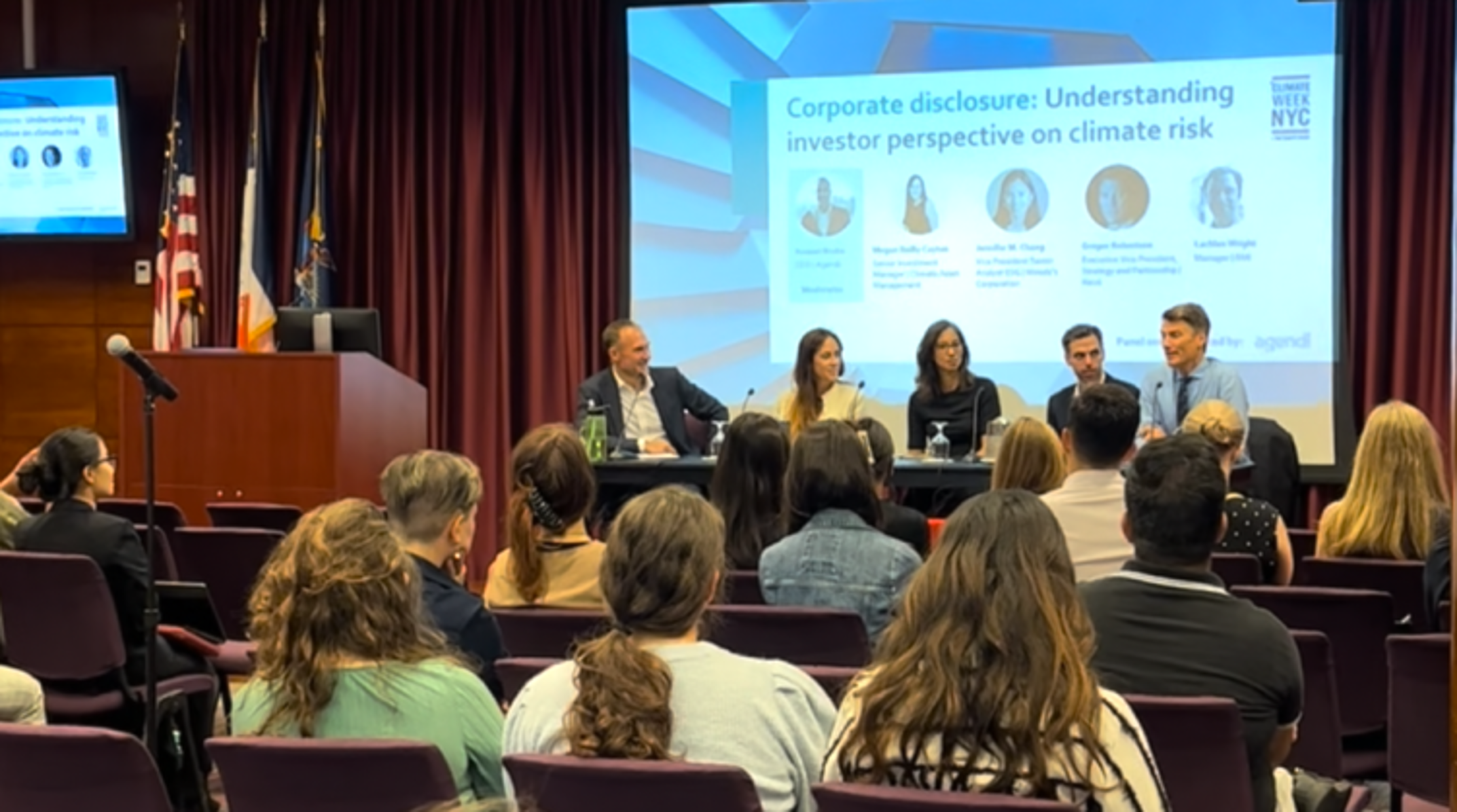Climate Week 2022 – Corporate Disclosure: Understanding investor perspective on climate risk
19 Sep 2022
During Climate Week NYC 2022, Agendi hosted Corporate Disclosure: Understanding investor perspective on climate risk. Moderated by Agendi’s CEO, Arnaud Brohé, this far-reaching discussion touched on cities, buildings, green infrastructure, transparency – scope 3 accounting and digital tracking, and the importance of nature. We were joined by Jennifer M. Chang from Moody’s Investors Service, Gregor Robertson from Nexii Building Solutions, Lachlan Wright from RMI, and Megan Reilly Cayten from Climate Asset Management.
Nature is as important as climate
Biodiversity/nature loss is a financially material risk. We have not captured the magnitude of the challenge in front of us. Many scientists believe that biodiversity loss poses a bigger threat to human existence than climate change. In last 40 years, we have lost 68% of all wildlife. Oceans have absorbed 90% of heat emitted since industrial revolution and 30% of carbon. If the goal is a habitable planet and we are successful reducing atmospheric parts per million, but there are no mangroves in Bangladesh and no Amazonian rainforests – then we do not have a habitable planet. We do not have time to wait until 2050 to sort climate out and deal with nature later.
Data quality and transparency is vital
To hit decarbonization targets, we need to make scope 3 emissions visible and traceable across supply chains. What we really need to know is what is happening in supply chains. Data access is critical – pulling emissions from spreadsheets and pdfs and making them available on a platform, allowing for data to be used in business decisions.
It’s about quality of data rather than quantity. Data related to asset location, as well as materiality. Entities will disclose general locations – but specifics on location as well as, for example, percentage of production in locations, and degree of emissions are needed to correctly evaluate risks.
Cities and nature are inextricably linked
Cities are trying to understand their connection to nature, and what this means. We have concentrated in cities in a way that prevents nature from being swamped with suburbs and sprawl. Cities need to find ways to directly support nature and reduce their impact on nature – this movement is starting but needs to ramp up. Cannot happen ‘just in the cities’ but writ large. Mass timber replacing steel to decarbonize structures– what does that do to our forests? Who is certifying that forests and their biodiversity are not being destroyed just to decarbonize structures? Tricky decisions need to be made. Cities need to not only decarbonize their emissions but realize their connection to nature.
Return to News
